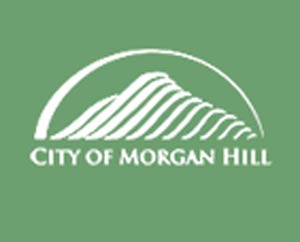The Morgan Hill City Council July 20 will talk about placing a $38 million general obligation bond for street infrastructure repairs and maintenance on the November ballot. If the bonds are approved by voters, they would be repaid with a parcel tax on local property owners.
But the council might approve a new local sales tax instead, as they are awaiting results of a survey—currently being tabulated by consultant Godbe Research—on the question of which new funding source the voters might prefer. Those results will be presented to the council July 27, when the five-member body is scheduled to approve a local funding measure for the ballot.
The bond could be used to fund basic city services such as parks, recreation and public facilities, according to a draft “Resolution of Necessity” for the bonds, which city staff is recommending the council approval.
But the crucial need, as discussed by council members numerous times for the last three years, is funding for repair and maintenance of city streets and roads. Staff estimates that the city currently suffers a funding shortfall of about $5.8 million per year to maintain streets and roads at their current level.
Councilman Rich Constantine said the choice between a general obligation bond and a sales tax is one of palatability to the voters. With the Santa Clara Valley Transportation Authority’s half-cent countywide sales tax for transportation infrastructure already approved for the Nov. 8 ballot, another such measure for Morgan Hill might get complicated.
“If there are too many sales tax initiatives on the ballot, it may be confusing to voters, or it may turn off voters,” Constantine said.
At least one resident wonders why the city is just now pursuing a new local tax or bonds when they have known about the inadequate funding for street and road repairs for several years.
“Issuing a bond doesn’t resolve the problem of city leaders not being more attentive to their fiscal responsibility. These funding gaps have been a known and ongoing issue for Morgan Hill for years, particularly with respect to street maintenance,” reads a letter from Morgan Hill resident Chris Monack to the council addressing the July 20 agenda item. “Every budget available on the City’s website, from 2007-08 to the present, has identified funding for street maintenance and repair as insufficient. Those same budgets continually noted increases in street maintenance backlogs.”
The two-year budget approved by the council in June designates about $2.06 million for street maintenance for 2016-17, and about $2.13 million for the same purpose for 2017-18—far short of what elected officials and city staff say they need. That budget also adds $250,000 in general fund dollars for capital street improvements for each of the next three years.
A passage from the city’s current Capital Improvement Program adds, “The 2016 Pavement Management Program update recommends needed rehabilitation of $3.9 million per year to maintain the city’s current Pavement Condition Index of 67 (“good”), though the deferred maintenance backlog will increase from $25.2 million to $30.7 million. The latest PMP report indicated a need to invest $6 million annually to increase the PCI from 67 to 72 and stabilize the backlog at $22.9 million.”
A city staff report for the July 20 meeting notes that City Hall and consultants have been conducting public outreach and surveys over the last several months in an effort to determine the public’s priorities, and their level of interest in taxing themselves for additional funds to pay for those priorities. A November/December 2015 scientific survey conducted by Godbe Research found that local residents’ top priorities for their city government include rapid response to 911 emergencies; maintaining the number of police officers on patrol; maintaining crime prevention and investigation programs; maintaining fire protection; and maintaining city streets and repairing potholes.
The last page of the 771-page budget approved in June adds that the survey found that 58 percent of respondents said “yes” to the concept of a local funding ballot measure to maintain city services.
If the council approves the resolution of necessity at the July 20 meeting, they will have to conduct another public meeting before sending a measure to Registrar of Voters to place on the Nov. 8 ballot. That second meeting will take place July 27.
If approved, $38 million worth of bonds would be repaid by an annual property assessment of $29 per $100,000 of assessed (not fair market) value of each property.
A sales tax measure only requires one public meeting before the council’s approval for the ballot. The council will also discuss this option at the July 27 meeting. City staff have not identified how much a potential local sales tax would cost the taxpayers.
The VTA has already submitted its Nov. 8 ballot measure for a countywide half-cent sales tax, to raise $6 billion over the next 30 years for streets and roads projects and maintenance.
Constantine added that even with those funds, about $23 million of which are earmarked for Morgan Hill street repairs, the city still won’t have enough money to meet its current and long-term transportation infrastructure needs.
The deadline to submit a measure for the Nov. 8 ballot is Aug. 5.
Also on the agenda for the July 20 council meeting:
• Discussion on the Residential Development Control System and General Plan update. No action is recommended, but the council will likely continue to discuss both documents—and perhaps approve final drafts—at the July 27 meeting. The RDCS update requires voter approval in November.
• Approve about $1 million in funding for the county’s DeWitt Avenue “S” curve realignment.
• Purchase two Ford Explorer police vehicles—one for the K-9 unit—for about $114,000.








